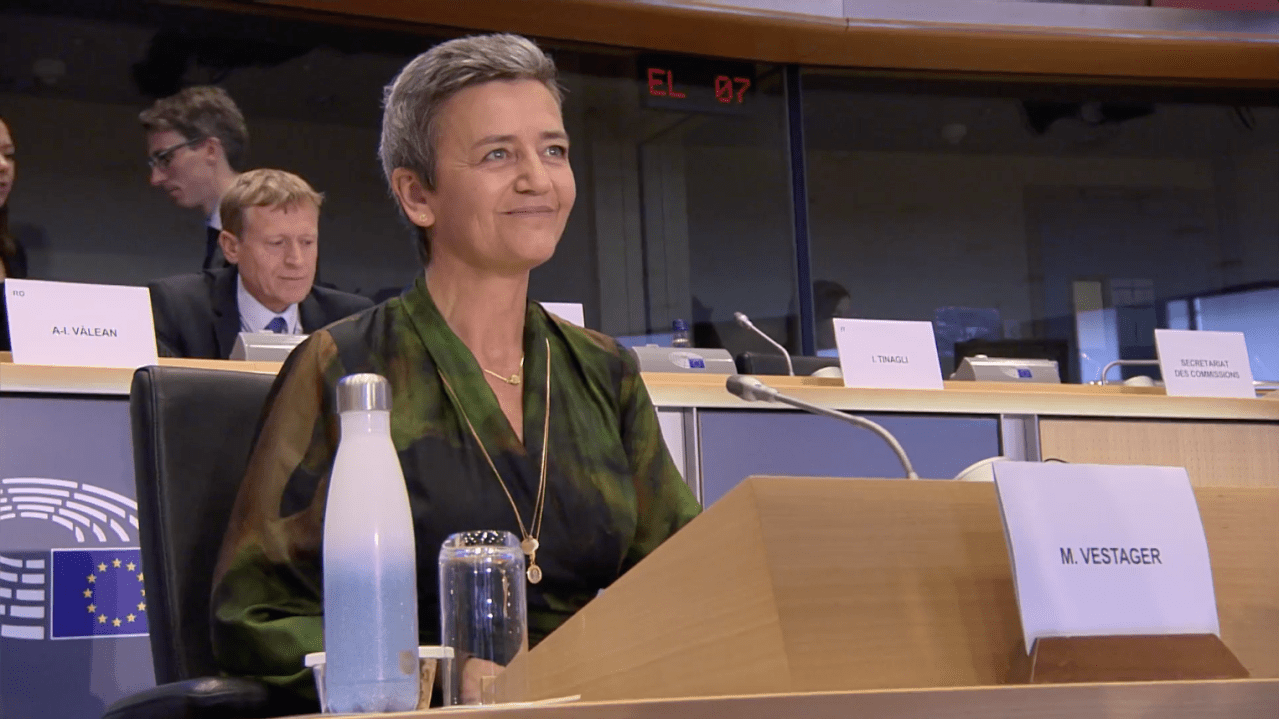As Europe charges into a new digital era, Margrethe Vestager, the European Commissioner for Competition, is set to play a pivotal role in shaping the continent’s digital landscape. The ambitious roadmap she laid out during her recent parliamentary hearing reflects her commitment to ensuring that Europe remains competitive on a global scale. With a unique dual role overseeing both competition and digital policy, Vestager’s approach promises to redefine what it means to be a regulatory leader in the age of technology.
Challenges Ahead: Balancing Competition and Innovation
At the heart of Vestager’s strategy lies a recognition of the intricate balance required between enforcing antitrust laws and encouraging innovation. During her parliamentary hearing, she faced pointed questions regarding potential conflicts of interest stemming from her dual portfolio. Vestager’s response was robust—emphasizing that “independence in law enforcement is non-negotiable.” This strong stance underscores her intent to rigorously uphold fair competition while fostering a vibrant technological ecosystem.
In her view, traditional methods of competition enforcement must evolve. She acknowledged that fines against tech giants often result in minimal changes, as they can be perceived merely as operational costs. Vestager’s call for “stronger remedies for competition” points to a need for more innovative and effective tools in the regulatory toolkit—ones that can spur real market transformation rather than merely punishing non-compliance.
Europe’s Digital Services Act: A Pillar for Trust and Fairness
Vestager made waves with her commitment to a comprehensive Digital Services Act. By upgrading liability and safety rules for digital platforms, she aims to establish a trustworthy digital environment where data is utilized for societal benefit rather than market concentration. “We need to focus on fairness,” she declared, proposing regulations that would reshape how companies navigate the vast sea of data they collect.
This focus on transparency is critical, especially as the world witnesses the rise of data monopolies. By advocating for a regulatory framework that demands fair practices from digital platforms, Vestager positions Europe as a counterbalance to the data-gobbling giants, paving the way for more equitable opportunities for smaller businesses and users alike.
Redefining Artificial Intelligence: Ethical Approaches for Progressive Outcomes
Artificial intelligence (AI) was a significant theme in Vestager’s hearing. As the technology reshapes every facet of daily life, the need for ethical guidelines grows more urgent. She highlighted her commitment to developing a framework for ethical AI applications that enhance human decision-making rather than undermine it. “We need to listen to diverse stakeholders,” she remarked, acknowledging the complexities involved in formulating regulations for such a burgeoning field.
Vestager views ethical AI development not merely as a precaution but as an opportunity for Europe to lead in creating “AI with a purpose.” This includes applications that address pressing issues, including healthcare improvements and climate challenges, all while remaining aligned with European values and ethics.
Taxation in the Digital Age: Uniting Global Standards
The question of digital taxation remains prominent on the European agenda. Vestager’s insistence on striving for a global agreement on reforming tax rules reflects a keen understanding of the complexities involved in cross-border digital commerce. However, she remains pragmatic, emphasizing that Europe is prepared to act independently if global consensus proves elusive.
Her focus on amending Article 116 of the Treaty on the Functioning of the EU is an intriguing approach, enabling more streamlined tax legislation through qualified majority voting. This strategic maneuver could potentially fast-track necessary reforms that ensure equitable taxation across the digital landscape.
Public Procurement as a Catalyst for Innovation
Venturing further, Vestager advocates for a more strategic use of public procurement, urging EU member states to channel funds into digital research and innovation that benefits collective interests. By integrating entire value chains—from universities to manufacturers—she envisions a collaborative framework that offers smaller businesses the chance to contribute significantly to the digital economy.
Conclusion: Vestager’s Vision for the Future
Margrethe Vestager’s five-year pitch encapsulates a transformative vision for Europe—a digital strategy that blends rigorous antitrust enforcement with robust innovation policies. By addressing competition, taxation, AI ethics, and public procurement, her commitment to a digitally fit Europe presents a compelling opportunity for the continent to assert its place on the global stage.
The road ahead may be challenging, but with leaders like Vestager at the helm, Europe appears poised to navigate the complexities of the digital age while maintaining its core values. For more insights, updates, or to collaborate on AI development projects, stay connected with fxis.ai.
At fxis.ai, we believe that such advancements are crucial for the future of AI, as they enable more comprehensive and effective solutions. Our team is continually exploring new methodologies to push the envelope in artificial intelligence, ensuring that our clients benefit from the latest technological innovations.

